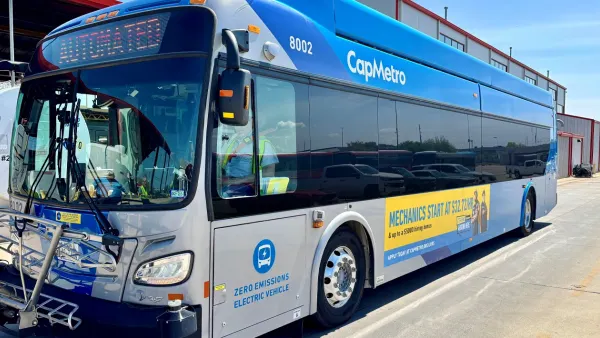UPDATE, July 30, 2019: The New York Metropolitan Transportation Authority (MTA) and the Partnership for New York City today announced the completion of the inaugural Transit Tech Lab accelerator, which challenged tech companies to develop products that address the city's subway and bus challenges.
Of the six companies graduating from the accelerator, four were selected to pilot their innovations with the MTA. The four selected companies are: Axon Vibe, a smartphone application that enables public transit operators to communicate with users based on their commuting behavior; Veovo, which can measure the number of passengers moving through a subway station; Preteckt, a software that can predict system failures on buses; and Remix, a software that enables MTA to more efficiently redesign bus networks according to the Fast Forward NYC Plan.
"There is this appreciation on some levels that [public transit] is a real part of the fabric of the city and it is critical to the future of the city," Rachel Haot, executive director of the Transit Innovation Partnership, told Smart Cities Dive in a May interview.
Dive Brief:
- The New York Metropolitan Transportation Authority (MTA) and the Partnership for New York City announced the finalists for their Transit Tech Lab accelerator, aimed at advancing transit innovation. Companies were chosen either for a subway challenge, to find better solutions to predict and prevent subway delays, or for a bus challenge, to find ways to help buses move faster and more efficiently.
- Six technology companies were chosen from a field of nearly 100, with three selected for the bus challenge and three selected for a subway challenge. The subway challenge companies are Axon Vibe, Veovo and Palisade Labs; the bus challenge companies are PIPS Technology, Preteckt and Remix.
- The chosen companies will take part in an eight-week program during which they will work with MTA personnel to customize their products in a way that meets the transit agency's and its customers' needs.
Dive Insight:
MTA's accelerator will help six young companies get their products and solutions in front of one of the country's most prominent transit agencies. It will also allow MTA staff to become familiar with new technology they might not have otherwise discovered. The businesses will work on solutions to improve MTA service that include predictive maintenance, deploying a platform for transit network planning, using computer vision to reduce bus lane blockages, using sensors to address platform crowding and deploying tools to predict subway delays.
Government procurement processes generally are complex and tedious for businesses to navigate, especially for small or new businesses. Those businesses sometimes do not bother trying to win contracts with governments because of the difficulty of the process and assumption that well-established, big-name and highly profitable businesses have the advantage.
Governments realize the procurement process can be challenging but certain procedures are in place to improve transparency and prevent wasting taxpayer dollars or favoritism in awarding contracts. A number of cities are trying to find ways to even the playing field and make it easier for a more diverse assortment of businesses to benefit from procurement partnerships.
For example, Living Cities and the Citi Foundation recently released the results of five cities that participated in an accelerator to devise innovative, locally-tailored strategies to develop procurement relationships that are more inclusive of business owners of color. The partners created a guide for other cities that wish to follow suit.











